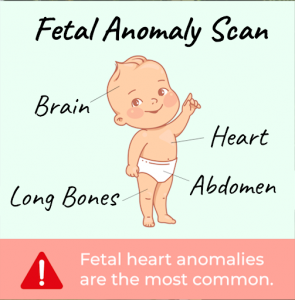Congratulations! Now that you are pregnant, you will be seeing your obstetrician routinely, as part of your antenatal care. At each pregnancy trimester, different tests are performed, sometimes for mummy, sometimes for baby, to check for anything that may cause a problem during your pregnancy or affect your newborn.
In this article, Dr James Lee explains the common antenatal tests and what they do. Pregnant mummies, this is for you!
First Trimester: Week 5 to Week 12/14
The first trimester is a crucial time for you and the baby. Read more on how your body changes in the first trimester.
Checking both mother and fetal health are important in the first trimester. For the mummies, checks will be performed to ensure your body is ready to take on a healthy pregnancy:
I. Blood Count
The initial tests would include ensuring that mummy has sufficient red blood cells and is not anaemic.
II. Immunity Status
As some infections and viruses can affect the baby’s growth or cause fetal malformations, early checks would be done to check on your immune status. Blood tests will be taken to check for the presence of: Rubella, Hepatitis B, VD and HIV.
On the baby’s end, first trimester tests will focus on primarily chromosomal abnormalities, which could result in Down’s syndrome, Edward’s syndrome, Patau syndrome and sex chromosome anomalies. To screen for these anomalies, your obstetrician will recommend these tests:
I. OSCAR test
The OSCAR test is a common test that has been available since 1980’s, and is one of the most cost-effective tests around. It comprises:
- A scan to check on the nuchal translucency and thickness of the fetal neck skin
- A blood test using mummy’s blood to test for AFP (alpha-fetoprotein) and HCG (human chorionic gonadotrophin). The levels of these hormones are used as predictors for the risk of certain chromosomal disorders in the baby.
II. Non-Invasive Pre-natal Testing (NIPT)
NIPT is a broad term that covers a range of pre-natal tests that includes: HarmonyⓇ, VerifiⓇ, IGeneⓇ and PanoramaⓇ.
- All these tests are performed to evaluate the DNA fragments that come from the baby.
- They can do this by testing your blood as some of the baby’s cells get broken down and assimilated in your bloodstream.
- If the number of DNA fragments for a specific chromosome is normal, then there is a low risk of chromosomal anomalies. But if the level is higher than normal, there could be a chance that the baby is at risk of developing a chromosomal anomaly.
- NIPT can also determine the gender of the baby, which more importantly, means that it can be used to check if the sex chromosomes are of a normal or abnormal configuration (detect for sex-linked chromosal conditions).
Second Trimester: Week 12 to Week 28/30
The second trimester is a stable phase where the baby continues to grow. You will find that your early pregnancy symptoms are mostly gone. You can read up more about your second trimester here.
In this trimester, the main focus is ensuring that your baby has a good structural growth. Around Week 20, your obstetrician will do a fetal anomaly scan (FAS), which is a detailed ultrasound surveillance of all the fetal structures starting from head to toe.

These are the different parts of the baby the fetal anomaly scan will look at.
-
- Starting at the head, the obstetrician will ensure there are no cerebral problems and all the neck muscles are properly formed.
- He or she then moves on to make sure there are no major heart defects.
Fetal heart anomalies are the most common congenital birth defects observed in babies. The check of the heart structure is therefore very important, where he or she will look out for any major septal defects or if there are any issues with the large blood vessels of the heart. - Next, at the abdomen, the obstetrician will ensure the kidneys are properly formed, the bowel movement is normal and the bladder is functioning well.
- Then, the long bones will be examined as well to make sure the length is normal. In the event that it is not, dwarfism might be suspected.After the fetal anomaly scan, the obstetrician will also survey the location of the placenta. This is to make sure the placenta is not obstructing or affecting the growth of the baby and subsequently the baby’s delivery.
Third Trimester: After Week 28
When the third trimester approaches, the obstetrician prepares you for delivery. This is also when you can start to feel your baby kicking! Read more about the third trimester here.
Most of the antenatal tests are completed by this stage. There is just one last important test for the mummy, called the Oral Glucose Tolerance Test (OGTT). This is used to check if the pregnant mummy has developed gestational diabetes. This is how the test works:
- On Week 28, the lady will visit the obstetrician after fasting overnight and do a blood test of her sugar/glucose levels (baseline test).
- After the blood test, she will drink a 75g glucose fluid to challenge her body’s ability to absorb the sugar.
- This is followed by 2 more blood tests 1 and 2 hours later.

The Oral Glucose Tolerance Test an important test for the mummy.
If your OGTT results are normal, you are more or less cleared of all the conditions that needs to be watched for, and your gynae will focus on preparing for your delivery.
In the event that you have gestational diabetes (GDM), more care would need to be taken (e.g. monitoring, diet changes) to ensure the diabetes does not worsen and affect your baby. GDM, if poorly controlled, can result in premature delivery of your baby.
Why are Antenatal Tests Important?
Now that you know more about the purpose of the various antenatal package and tests, remember to go for your routine antenatal visits as advised by your gynaecologist. Every normal milestone check means one step closer to a successful pregnancy outcome.
Dr Lee’s Place of Practice
38 Irrawaddy Road #05-21/22
Mount Elizabeth Novena Specialist Centre
Singapore 329563
Tel: +65 6258 5530
681 Punggol Drive
Oasis Terraces, #03-11
Singapore 820681
Tel: +65 6258 5530






